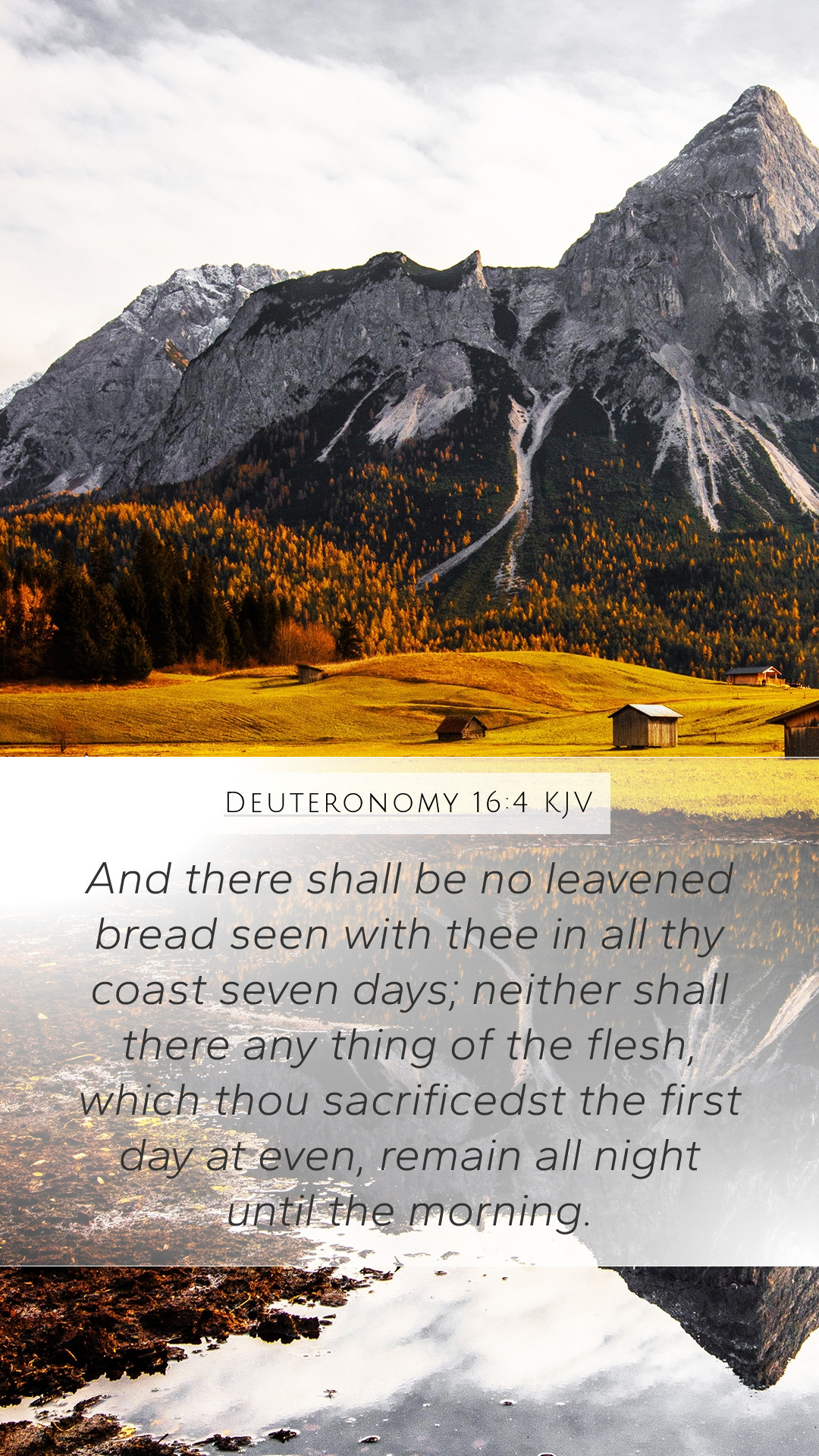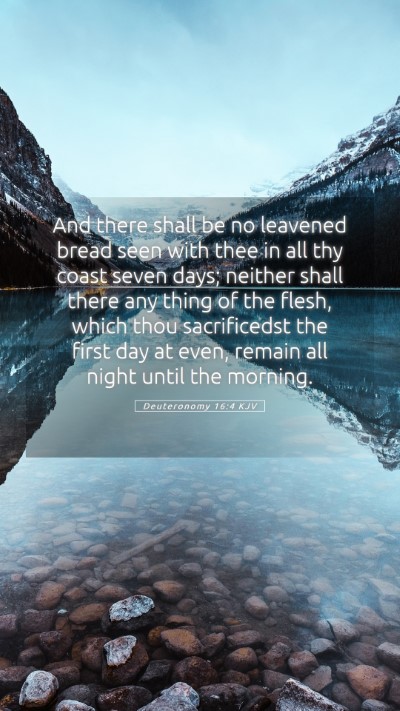Understanding Deuteronomy 16:4
Deuteronomy 16:4 is a pivotal verse that underlines the importance of purity in worship and the observance of significant festivals in the life of Israel. This verse states: "And there shall be no leavened bread seen with thee in all thy coasts seven days; neither shall there any thing of the flesh, which thou sacrificed the first day at even, remain all night until the morning."
Bible Verse Meanings
The verse emphasizes the cleansing of leaven from among the people, symbolizing the removal of sin and corruption. Leaven often represents sin in the Scriptures (1 Corinthians 5:6-8). By forbidding leaven during the Feast of Unleavened Bread, God commanded the Israelites to purify themselves, promoting a deeper spiritual cleanliness.
Bible Verse Interpretations
According to Matthew Henry, this verse serves to illustrate God's desire for His people to maintain their holiness and integrity. The Israelites were to observe the ordinance without any of the past's corruptions, allowing them to approach God with sincerity and purity of heart. Albert Barnes adds that the prohibition against leaven was not merely about physical bread but symbolized a broader call to avoid the sinful influences that could permeate their lives.
Bible Verse Understanding
Adam Clarke emphasizes that the instructions given to the Israelites were part of their covenant relationship with God. By adhering to these stipulations, they demonstrated their commitment and love for Him. The directive to not let any flesh of the sacrifice remain until morning indicates the importance of honoring God's directives in every aspect of life. It reflects a heart devoted to God and signifies the eternal nature of God’s commands.
Bible Study Insights
- Symbolism of Leaven: The presence of leaven signifies a representation of sin, emphasizing the necessity for believers to eliminate all forms of sin from their lives.
- Festival Observance: The instruction to observe the festivals, emphasizing purity and devotion, invites believers today to reflect on the importance of obedience in worship.
- Divine Instruction: The specifics of what to do with the sacrifices point to the care with which God requires His commandments to be followed.
Biblical Exegesis
Exegesis of Deuteronomy 16:4 reveals a pattern found throughout the Old Testament, where God instructs His people to remain distinct from the corrupting influences of surrounding nations. This call for holiness and ritual purity underlines the necessity for a steadfast focus on divine commandments and the commitment to maintain a relationship with God free from the influences of sin.
Application of Bible Verse to Daily Life
Incorporating the lessons from Deuteronomy 16:4 into daily life involves a conscious effort to remove sinful influences and maintain purity in thoughts and actions. It encourages believers to evaluate their lives for areas that may be tainted by sin and to seek God’s guidance in correcting them.
Related Bible Cross References
- 1 Corinthians 5:6-8 - The teaching on leaven as a metaphor for sin.
- Exodus 12:15 - The command concerning the removal of leaven during the Passover.
- Numbers 9:12 - Instruction regarding the lamb offered during Passover.
In summary, Deuteronomy 16:4 serves as a vital instruction about sanctity in worship, emphasizing the removal of leaven as a symbol of ridding oneself of sin. The underlying themes of purity, obedience, and commitment continue to resonate within the context of modern faith practice. As believers seek to understand scripture, studying passages like this can provide significant insights into biblical principles relevant to their spiritual journey.


